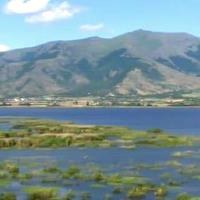(BRUSSELS) – The EU has ended uncertainty over the future of its flagship nature laws – the Birds and Habitats Directives – by confirming that it would be saved, and neither rewritten nor weakened.
Environmental NGOs hailed the European Commission’s confirmation as a victory for the over half a million people who had called on the EU executive to save and enforce these laws as part of a Europe-wide campaign.
The Birds and Habitats Directives contribute to achieving the EU’s commitment to halt and reverse biodiversity loss by 2020. They are responsible for the creation of the largest and most coherent network of protected natural areas in the world (the ‘Natura 2000’ network), covering 18% of EU territory on land (over 1 million square kilometres) and around 6% of its seas.
The NGOs say the nature laws are fundamental to nature protection in Europe, safeguarding more than 1,400 threatened species and one million square kilometres of natural habitats in Europe that fall under their protection.
The Commission has since 2014 been consulting citizens and stakeholders across all EU Member States.
Its evaluation identified a need to improve implementation of the Directives and “their coherence with broader socio-economic objectives”, including other EU policy areas such as energy, agriculture and fisheries.
It said the problems problems primarily related to insufficient management and lack of adequate investment in the Natura 2000 network of protected sites, as well as to “local deficiencies such as delays, unnecessary burdens for project permits and lack of adequate different assessments in regulating individual species”.
The Commission is promising to develop an Action Plan to correct deficiencies, with measures such as holding regular meetings with mayors and other local authorities to assess implementation challenges and help Member States take the necessary corrective action.
It will also design implementation guidelines for regional actors, reducing unnecessary burdens and litigation, and incentivising national and regional investment in biodiversity.
Europe’s troubled nature has dodged a bullet, said Robbie Blake, for Friends of the Earth Europe: “We all need nature in our lives for health and well-being, so this decision to keep some of Europe’s most important and popular laws, is a no brainer – but these vital nature protections should never have been in doubt in the first place. This is a defeat for those who seek to slash our environmental protections in the name of cutting so-called ‘red tape’.”
For the European Environmental Bureau, EU Policy Director Pieter de Pous, said nature conservation is “chronically underfunded” but also that there was a need to reform the Common Agricultural Policy (CAP), which “continues to degrade our natural environment by rewarding the biggest farms which pollute the most, driving up the cost of preserving our habitats and wildlife even further. The longer it takes to reform the CAP and align it with environmental objectives, the more difficult and expensive it will be to halt nature loss. The Commission must kick-start an ambitious overhaul of the CAP to ensure it rewards farmers who protect Europe’s wildlife and the natural resources farming so heavily depends on water and soil.”


